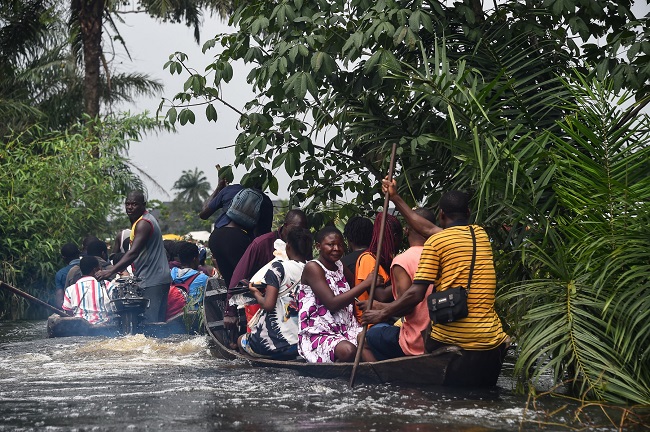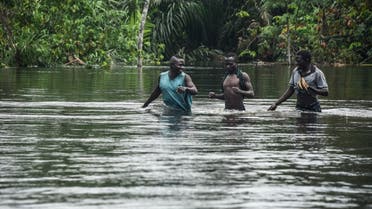Floods in Nigeria have recently caused significant devastation, killing scores of people and washing away vast areas of farmland, raising serious concerns about food security in the country. The heavy rains, which began in July and intensified in August, have triggered widespread flooding across several states, particularly in central and northern Nigeria. The floods have resulted in the deaths of at least 100 people and displaced thousands, according to the National Emergency Management Agency (NEMA).

Source:- news 18
The agricultural sector has been hit hard, with large swathes of farmland submerged, leading to the destruction of crops such as rice, maize, and millet. This devastation threatens to exacerbate Nigeria’s already precarious food security situation, as millions of people are at risk of food shortages. The United Nations World Food Programme (WFP) has warned that the flooding could severely impact the upcoming harvest season, which is critical for local food supplies.
Source:- BBC news
Nigeria, Africa’s most populous country, is highly dependent on agriculture, with nearly 70% of its population engaged in farming. The loss of crops and farmland could lead to an increase in food prices, affecting both rural and urban populations. Furthermore, the floods have damaged infrastructure, including roads and bridges, complicating efforts to deliver aid and support to affected communities.
The Nigerian government has mobilized resources to assist those displaced by the floods, but the scale of the disaster has overwhelmed local capacities. International organizations, including the WFP and the International Red Cross, are working alongside the government to provide emergency food assistance and temporary shelters to those in need.
However, experts warn that without significant intervention, the situation could worsen, leading to a humanitarian crisis. Climate change, which is contributing to more frequent and severe weather events, highlights the urgent need for improved disaster preparedness and sustainable agricultural practices in Nigeria.
Share your views in the comments

